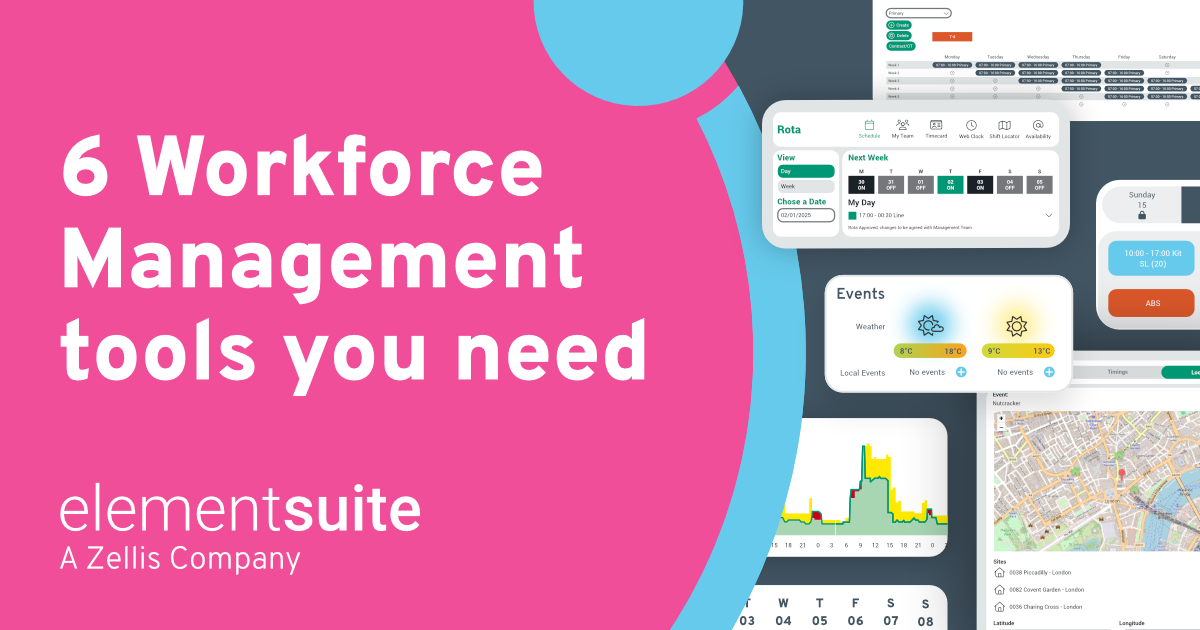The future of work is changing and as a result many businesses are shifting their focus to building a sustainable workforce for a better tomorrow. A workforce that is resilient, adaptable, and able to navigate challenges while also creating a positive impact in the community. But as social enterprise organisations, this is especially important to maintain the balance of both profitability and the social impact that drives our business.
Definition of a sustainable social enterprise workforce
When you plant a tree, you have to nourish it with the right amount of water, sunlight, and nutrients for it to grow strong and healthy. Similarly, a sustainable social enterprise workforce requires the same continuous care and investment in its people.
A sustainable social enterprise workforce is one that can adapt and thrive in the face of challenges while still remaining aligned with the organisation’s values and purpose. It goes beyond just having a group of employees who show up to work every day. Instead, it focuses on creating a resilient team that is committed to the long-term success and impact of the organisation.
Importance of a sustainable workforce in meeting the needs of a growing population
According to the Office for National Statistics (ONS), the UK population will grow significantly in the coming years. It is projected to reach 70 million by mid-2026, skyrocketing to 76.6 million by mid-2046. Plus, with the number of people aged 85 years and over expected to increase from 1.6 million (2.5% of the total population) in 2021 to 2.6 million (3.5%) by 2036, it’s clear that society’s demands and needs are only going to increase.
If we are to ensure long-term economic stability and facilitate job creation, improving the living standards of the growing population, we must also build a sustainable social enterprise workforce that can meet these demands.
Current challenges within the social enterprise sector
However, as with any industry, the social enterprise sector faces its own unique set of challenges. More notably, staff shortages, and high turnover rates.
Staff shortages and high turnover rates
Our HR Metrics that Impact 2023 report found that health and social care’s annual turnover is a staggering 19.22%. This figure is particularly concerning for social enterprises, whose purpose often involves providing essential services to communities and vulnerable individuals. They simply cannot afford to be short of skills.
Employees want career advancement opportunities and compensation that reflects their skills and hard work. But as much as we want to provide this, the social enterprise sector’s lack of funding and resources can make it challenging to meet these expectations. However, if we do not – the ripple effect of not investing in your workforce can be costly, leading to job dissatisfaction, high turnover rates, and, ultimately, staff shortages.
Increasing demand for social enterprise services
At the same time, with a growing and ageing population, demand for social enterprise services is on the rise. In fact, a survey conducted by Social Enterprise UK found that 80% of social enterprises expect demand for their products or services to grow in the coming years.
But it also means that social enterprises will need to find ways to attract and retain talent and invest in their current workforce to meet this demand effectively.
The burnout epidemic on social enterprise
Needless to say, over the past few years, social enterprise workers have felt overworked, underappreciated and underpaid. As a result, 91% of 1359 social care workers across the UK report experiencing moderate to high emotional exhaustion.
We have seen strikes, protests and calls for better working conditions across the sector. And with projections of increase in demand, mixed with the current staff shortages the industry is already facing, this burnout epidemic must be addressed to avoid further dampening the workforce crisis. Sustainability cannot be achieved if our employees are not well taken care of.
Strategies for building a sustainable social enterprise workforce
To build a sustainable workforce, social enterprises must first acknowledge and address the current challenges within the sector. But it’s not just about tackling these challenges; it’s also about implementing proactive strategies to build a thriving and resilient workforce.
Scheduling for multiple roles
When it comes to staff shortages, have you considered the internal skill set that could bridge the gap you need to keep service levels high without having to hire externally, saving costs and even reducing turnover rates?
All you need is an efficient scheduling system in place to provide you with insights into internal skills, employee preferences, and availability. It is here that you can start assigning tasks to the right people to fill the multiple roles that need filling. And with technology such as elementsuite, you can even automate this process (with your overview, of course). By setting your own rules on shift requirements, Working Time Regulations and service user requirements, the system can do the heavy lifting for you- providing suggestions of who to schedule, and when.
Simplifying document management
If there is one thing to be said about creating a sustainable social enterprise organisation, it’s to have clear and concise processes in place. Avoiding document chaos is a great start. And we don’t just mean file storage; we mean making the relevant documents available for your employees.
Whether it be investing a centralised system for all your essential policies and procedures, electronically storing qualifications and training records, or creating and storing important HR documentation all in one secure place, it all goes a long way in promoting efficiency and employee satisfaction.
And if you go that one step further to invest in AI, such as ELLA, elementsuite’s very own homegrown Large Langauge Model (LLM), to supercharge your employee-service capabilities and digital employee experience – you’re setting yourself apart from others and creating a workplace environment that employees want to be part of.
Your employees can ask ELLA questions, such as “how many days holiday do I have left?” or “how much overtime have I done this month?” and receive an accurate response in real-time. No more endlessly searching through documents or waiting for HR to respond – everything they need is at their fingertips.
Automating manual, time-consuming processes
But enhancing the digital employee experience isn’t just limited to scheduling and document management. Automating other manual, time-consuming processes such as recruitment, onboarding, and training can also benefit you and your workforce greatly.
Instead of spending countless hours sifting through resumes and conducting multiple interviews, you can use technology to streamline the recruitment process. Or, instead of manually onboarding new employees, you can automate the process from the moment they accept the position – providing them with all the necessary information and paperwork in a user-friendly format.
By automating these processes, you free up valuable time for your team to focus on more meaningful tasks and create a smoother, more efficient experience for everyone involved. And let’s not forget the added benefit of fewer human errors and increased compliance – both essential elements for building a sustainable social enterprise workforce.
Improving employee productivity engagement
Then, of course, is the power of employee engagement and productivity. But if you don’t know how to track and measure these very core aspects of what builds life into your organisation, then how can you really improve them?
The answer is simple. It is investing in a HR software that can measure and track employee engagement, satisfaction, and productivity through real-time data and analytics. Look into tools that can provide you with insights into employee feedback, attendance, and performance to help identify areas of improvement and implement effective strategies.
But without having an all-in-one HR system that connects all these elements and provides you with the insights you need, it can be challenging to achieve this level of employee engagement and productivity.
How can elementsuite help?
The future is digital, and so is the future of work. elementsuite provides a comprehensive HR software solution specifically designed for social enterprises to help build a sustainable workforce. With features such as scheduling, document management, process automation, and real-time data analytics, we can support your organisation in creating an engaged, efficient and resilient workforce that will drive your social enterprise forward
So if you want to learn more about how elementsuite can help build a sustainable social enterprise workforce, contact us today. Let us help you help people.




